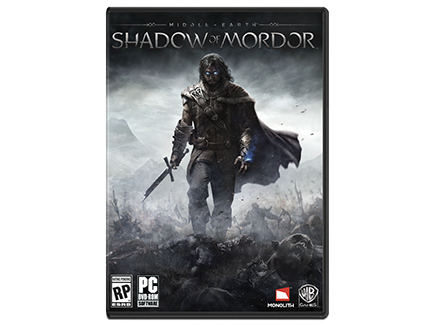Tom's Guide Verdict
With a gripping story, refined gameplay and some bold new ideas, Shadow of Mordor is a must-have title.
Pros
- +
Open world that feels alive
- +
Nemesis system personalizes gameplay
- +
Story respects Tolkien mythos
- +
Memorable visuals and sound
Cons
- -
Somewhat bland protagonist
- -
Unbalanced difficulty curve
Why you can trust Tom's Guide
Whether you read the books by J.R.R. Tolkien, watch the movies from Peter Jackson, Ralph Bakshi and Rankin-Bass or listen to the BBC radio dramas, the moral of The Lord of the Rings remains the same. The epic saga of Frodo Baggins and the One Ring is a story about how to reject overwhelming, corrupting power and rely on friendship, courage and inner strength instead. But how would The Lord of the Rings have ended if the heroes were willing to be just as conniving, bloodthirsty and power-hungry as the villains?
Shadow of Mordor ($60; PlayStation 4, Xbox One, PC; Tom's Guide reviewed the PS4 version) takes the central conceit of Tolkien's mythos and turns it on its head. At first glance, Shadow of Mordor is a very capable open-world action game that makes slaying orcs as much fun as it looked in Jackson's movies. Under the surface, Shadow of Mordor is both a celebration of Tolkien's work, and an exciting new take on it for a generation that's more comfortable with anti-heroism.
Gameplay
For a game that takes most of its cues from other titles, it's surprising that Shadow of Mordor feels as fresh as it does. Players take control of Talion, a Ranger who finds himself bound to an Elven Wraith in Mordor, the desolate land under the dominion of the Dark Lord Sauron. Talion spends the bulk of the game climbing tall structures and pursuing collectibles across an open map, like in Assassin's Creed, or engaging in fast-and-furious, counterattack-based combat with faceless foes, like the Batman: Arkham games.

For all of its similarities to other open-world action series, Shadow of Mordor still feels unique. Yes, you'll climb towers to unlock side missions and track down collectibles, but they're not just there to fill the time. Each artifact reveals a piece of the backstory, and each side mission fleshes out the Wraith's backstory. Exploring Mordor (which is not nearly as desolate as you may have believed) by sneaking past orcs, running through fields, or climbing ruins atop leonine beasts called caragors is a delight every time.
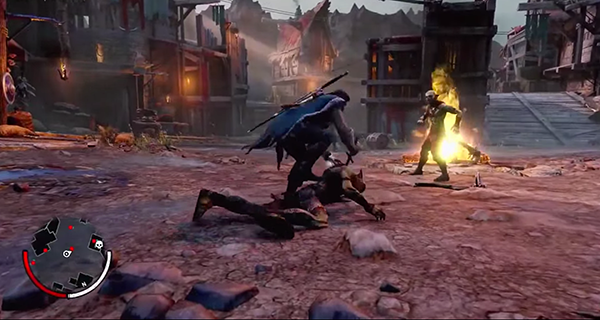
Although stealth and exploration are important parts of the game, combat is where Shadow of Mordor distinguishes itself. You'll fight orcs with single swords, twin swords, bows and shields, and each one requires different tactics to beat. Furthermore, you'll take them on not in small groups, but often up to 30 or more at a time.
MORE: Shadow of Mordor: Everything You Need to Know
Good reflexes are key, as attacking and counterattacking in a fluid rhythm are vital to building up your combo meter, and that's where things get fun. As you gain experience by slaying orcs, you can add new and exciting moves to your arsenal, including instant executions, devastating critical hits, stunning multiple foes at once and eventually chaining these moves together.
Get instant access to breaking news, the hottest reviews, great deals and helpful tips.
Although Talion starts out relatively weak, the game gives you every opportunity to make him into a warrior that slays entire battalions of orcs in the most brutal ways possible, and leaves survivors fearful of his coming retribution. If this sounds contrary to the lessons of The Lord of the Rings, that's because it is. The game is keenly aware of that, and constantly juxtaposes how exuberant it feels to behead an orcish warchief, leaving his followers fleeing in terror, against Talion's own fading humanity.
Nemesis system
Speaking of combat, it would be remiss to leave Shadow of Mordor's Nemesis system out of the discussion. The Nemesis system is easily the most inventive aspect of the game, and although it's not quite as innovative as developer Monolith hyped up, it's still an impressive system that has a significant impact on how the game plays out.
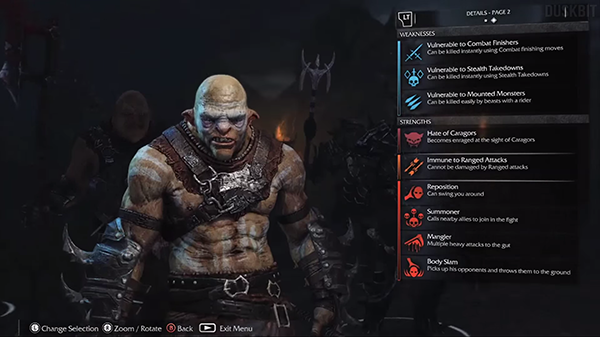
The orcs under Sauron's command organize themselves into a hierarchy of warchiefs and captains. Each one has a unique name, title, personality, voice and set of skills. One captain may be almost impossible to defeat in open combat, but is vulnerable to stealth kills. Another will flee at the first sign of fire, or walk away haughtily rather than deal you a deathblow.
You can rough up lesser orcs to learn the identities and characteristics of each captain, and as you kill them (or fail to) the hierarchy will change. Killing a captain means that another might rise up to take his place; getting slain by him means that he may advance in the ranks, and he'll remember your name — and your ignominious defeat — the next time you meet.
Even though every Shadow of Mordor player will encounter the same plot missions, the missions to take down orcish captains and warchiefs are unique, and make you feel as though your victories and defeats have a tangible impact on Middle-earth.

As Mordor is a land of darkness, the gameplay isn't all sunshine. Sometimes, orc captains will appear right on top of one another and make a balanced encounter into an impossible one. The platforming, while simple, feels haphazard and unrefined. Some battles can run on entirely too long; orcs will eventually get scared and run away after a pitched fight, but it's hard to tell when.
These and other minor frustration rear their heads regularly, but they don't do much to mar a game that's very hard to put down otherwise.
Story
Talion, a Ranger patrolling the outskirts of Mordor, has an idyllic life — until orcs raze his home, killing his beloved wife and son. (This seems to happen to a lot of grizzled, middle-aged, brown-haired game protagonists these days. Perhaps it's a genetic thing.) Even Talion himself doesn't escape the knife, but one botched incantation later, Talion finds himself bound together with an Elvish Wraith, unwilling to live but unable to die. Talion and the Wraith set out to punish the Black Hand of Sauron, the lieutenant responsible for the destruction of all the Ranger held dear.
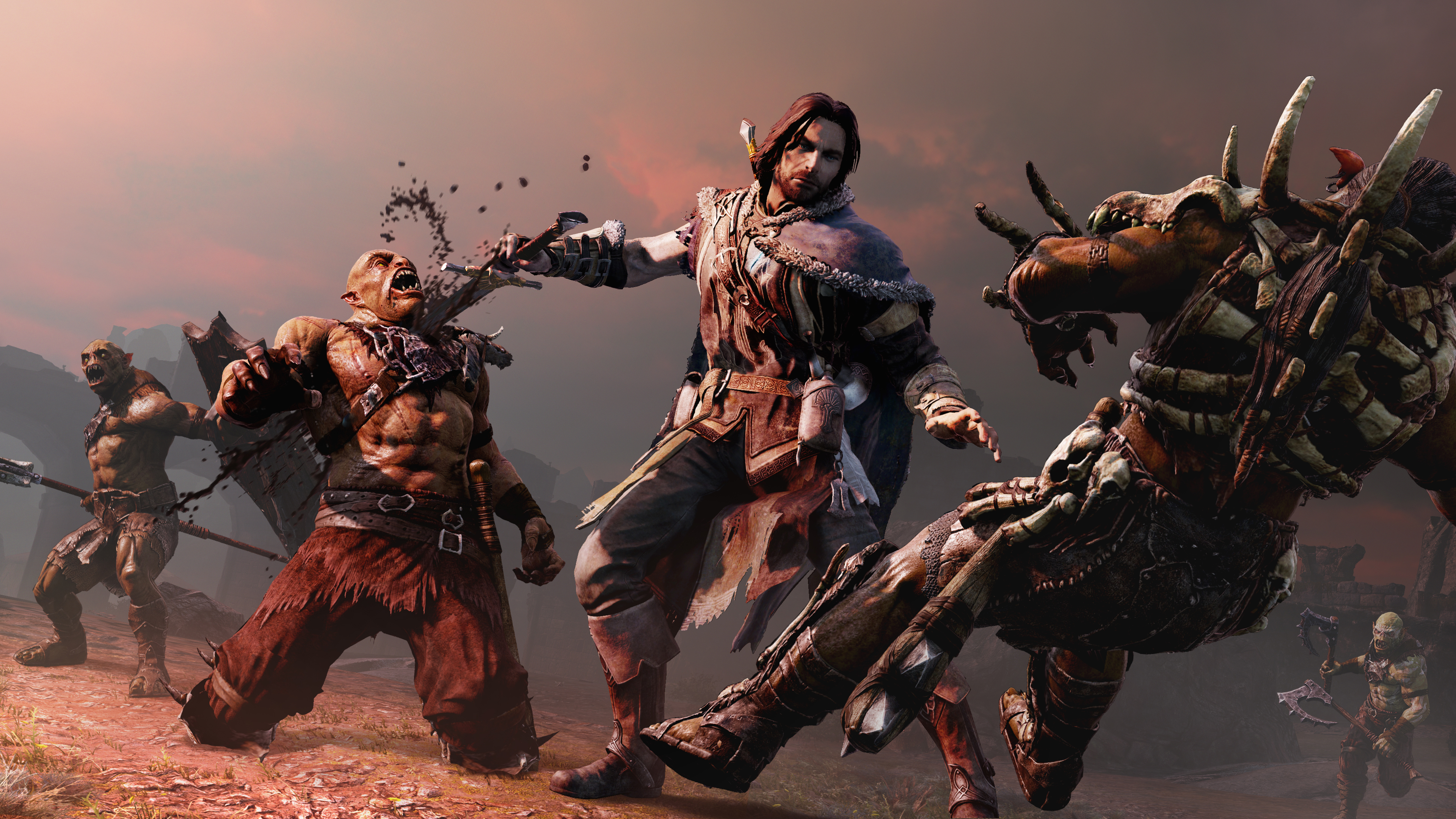
As Tolkien stories go, Shadow of Mordor starts out as straight-up revenge fantasy. Tolkien purists may be grinding their teeth, since the professor's stories never encouraged revenge, and shows that those who pursued it came to bad ends. (Túrin Turambar sacrificing his friends, losing his homeland and unknowingly impregnating his sister comes to mind.) However, the game doesn't exactly root for Talion as much as it shows how Mordor can twist any good aim to its own evil ends.

What results is a story that's smart, measured and unpredictable, even if Talion himself skews a bit to the generic side. With cameos from two major Tolkien characters (one is Gollum, the other one is a bit of a spoiler), the story feels very much like a part of Tolkien's world without aping existing material. Just keep in mind that Shadow of Mordor is not an official part of the Tolkien canon, even though it doesn't explicitly defy said canon too much.
Graphics and art
Shadow of Mordor is absolutely gorgeous, both in terms of character design and setting. From Gollum's slimy, glistening skin in the rain to Talion's chilling blue eyes, the amount of detail that went into the character designs is incredible, and the animation backs it up. Mordor itself is not nearly as barren as the books suggest (it would be a rather boring game if it were). The red soil, gray cliffs, brown mud pits and sparse green grasslands do a great job of making Sauron's realm seem like a cohesive and unpleasant place — always striking, but never beautiful.
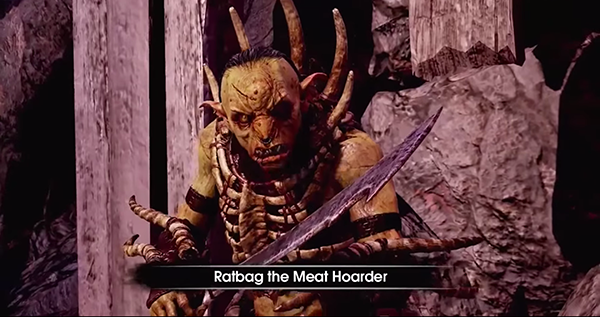
Likewise, the art style hews fairly close to the Jackson films, but with just enough of a cartoony edge to remind players that this is a fantasy story. During my time with Shadow of Mordor, I did not notice any screen tearing or slowdown, although Talion did occasionally get caught in corners or jump repeatedly on the same ledge when trying to climb certain structures.
Music and sound
First and foremost, Shadow of Mordor brings an all-star voice cast to its three main characters. Troy Baker's Talion, Alastair Duncan's Wraith and Liam O'Brien's Gollum all sound phenomenal, and completely in-character at all times. Baker is essentially the go-to guy for making generic-looking protagonists memorable, and O'Brien channels his very best Andy Serkis for the conflicted, twisted, fish-eating hobbit.
MORE: Best Gaming Mice
The music is very memorable as well, which is something of a rarity in modern mainstream gaming. From the comic incidentals that follow the orcish traitor Ratbag the Coward (he's just as amusing as he sounds) to the more pensive tunes that accompany Talion's inner monologue, the orchestration in Shadow of Mordor would not sound at all out of place in the films that inspired it.
Bottom line
As any Lord of the Rings fan can tell you, reading the series as a teenager can change your life forever. That's good, as it teaches you to internalize concepts like bravery, cooperation and selflessness. That's also bad, as it means any adaptation of Tolkien's mythos is going to come off as "almost good enough" at best, and "offensive" at worst.
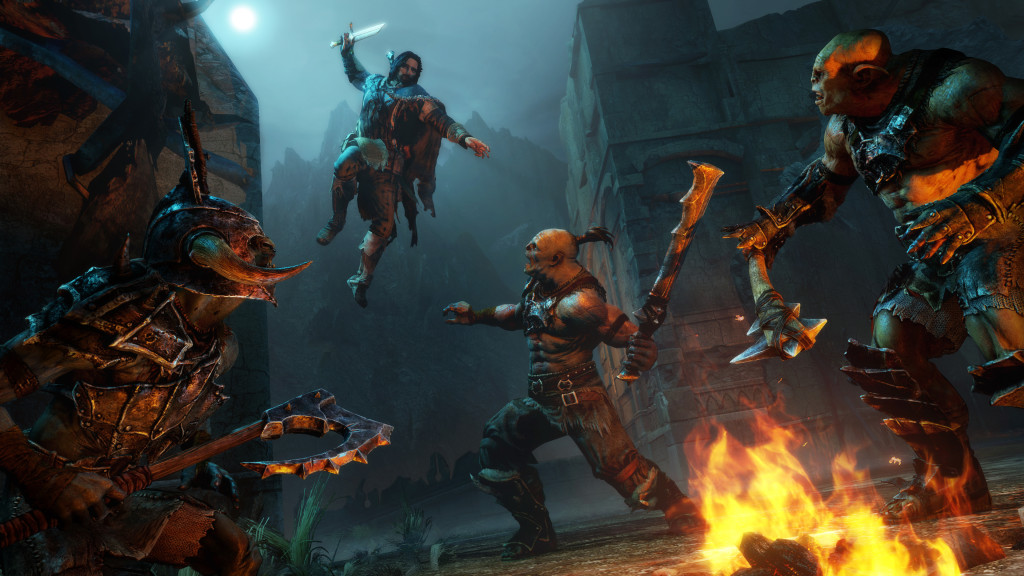
In spite of my initial reservations, Shadow of Mordor won me over in a pretty substantial way. The gameplay is top-notch, and the story respects the source material while pursuing the lore from a totally new angle. With a gripping story, refined gameplay and some bold new ideas, Shadow of Mordor is one of the first must-have games of the current generation.
Specs
Publisher: WB Games
Developer: Monolith
Genre: Action/Adventure
Price: $59.99
Release Date: 9/30/14 (11/18/14 for last-gen consoles)
Platforms: PC, PS4, Xbox One (Xbox 360, PS3)
PC Requirements
OS: 64-bit: Vista, Win 7, Win 8
Processor: Intel Core i5-750, 2.67 GHZ | AMD Phenom II X4 964, 3.4 GHz
Memory: 3 GB RAM
Graphics: NVIDIA GeForce GTX 460 | AMD Radeon HD 5850
DirectX: Version 11
| Our Favorite Gaming Hardware: |
| Best Gaming Mice |
| Best Gaming Desktops |
| Best Gaming Keyboards |

Marshall Honorof was a senior editor for Tom's Guide, overseeing the site's coverage of gaming hardware and software. He comes from a science writing background, having studied paleomammalogy, biological anthropology, and the history of science and technology. After hours, you can find him practicing taekwondo or doing deep dives on classic sci-fi.
-
SaibotLiu Pretty much agree with this review on all counts. It would've been nice though if they could've included a varying difficulty level (if they have I didn't see one). My wife is a big LOTR fan and would like to play this, but as a non-gamer I know she'd find it extremely frustrating. I know not every game is meant to be accessible to casual gamers, which I like, but cmon this is LOTR.Reply -
Credin 84 Generic AC-like "parkour" system? Check.Reply
Generic "press block to win" combat with QTE all over it? Check.
Generic "focus vision"/"night vision"/"wright vision" so the devs can highlight what's important to even the dumbest of idiots? Check.
"8x CRITICAL HIT YOU'RE SO AWESOME" popups? Check.
Experience bar added for no reason? Fucking check.
Completely raping the book's lore and storyline? Obvious check.
Bunch of casuals in the comments denying that it's pure crap and having buyer's remorse before even buying the god damn game? Next-gen check
https://www.youtube.com/watch?v=6AV9W2ZdmjU
Interesting moments: 4.00 4.58 7.45 10.20 10.50 11.50 13.08 14.15 15.40
-
Colin Lee Reply14339138 said:Generic AC-like "parkour" system? Check.
Generic "press block to win" combat with QTE all over it? Check.
Generic "focus vision"/"night vision"/"wright vision" so the devs can highlight what's important to even the dumbest of idiots? Check.
"8x CRITICAL HIT YOU'RE SO AWESOME" popups? Check.
Experience bar added for no reason? Fucking check.
Completely raping the book's lore and storyline? Obvious check.
Bunch of casuals in the comments denying that it's pure crap and having buyer's remorse before even buying the god damn game? Next-gen check
https://www.youtube.com/watch?v=6AV9W2ZdmjU
Interesting moments: 4.00 4.58 7.45 10.20 10.50 11.50 13.08 14.15 15.40
Think you're missing the bolded bit? BTW, what's "Next-gen check" mean? -
Jonathan Jon Jonlingtonson I have to admit, I never managed to finish the books. Managed about 1/3rd of the way through book one of The Return of the King before I grew bored of Frodo and Sam's seemingly endless wandering. I'm finding the game extremely enjoyable, there's always something interesting to do and completing quests feels rewarding. In terms of the "lore raping" aspect, well I'll finish the game and then read the fellowship books again, hopefully I'll manage to get through it on my next attempt.Reply
